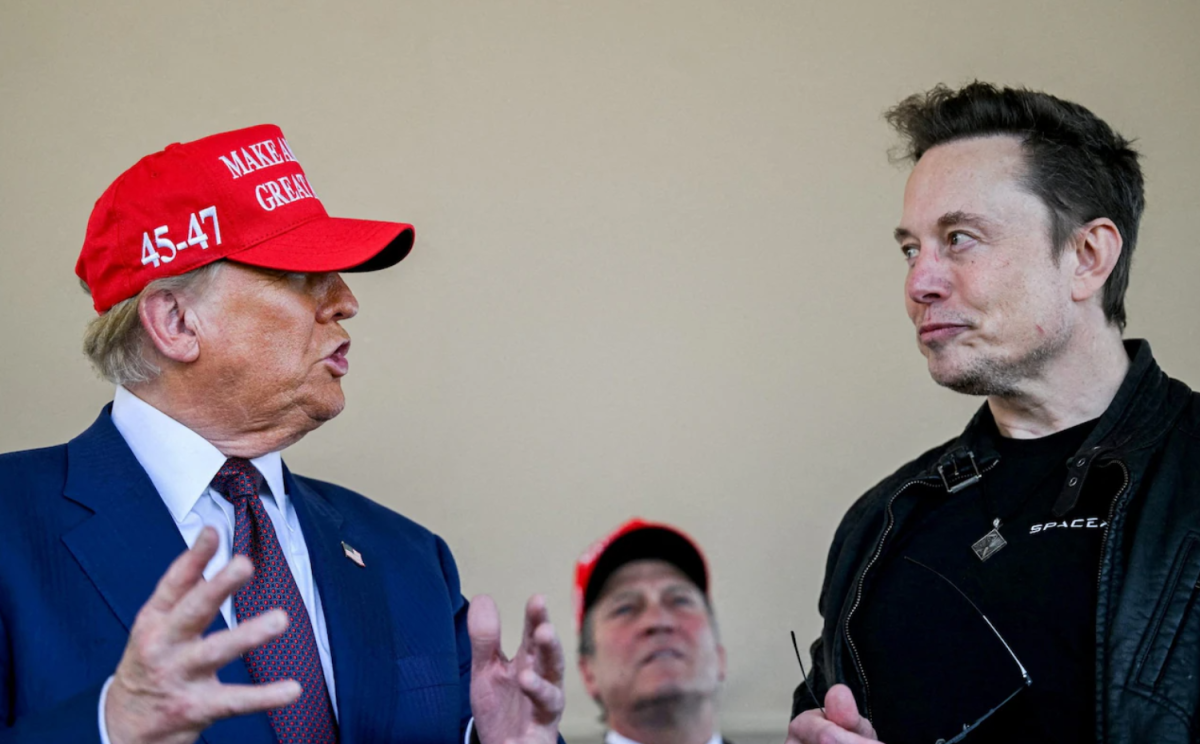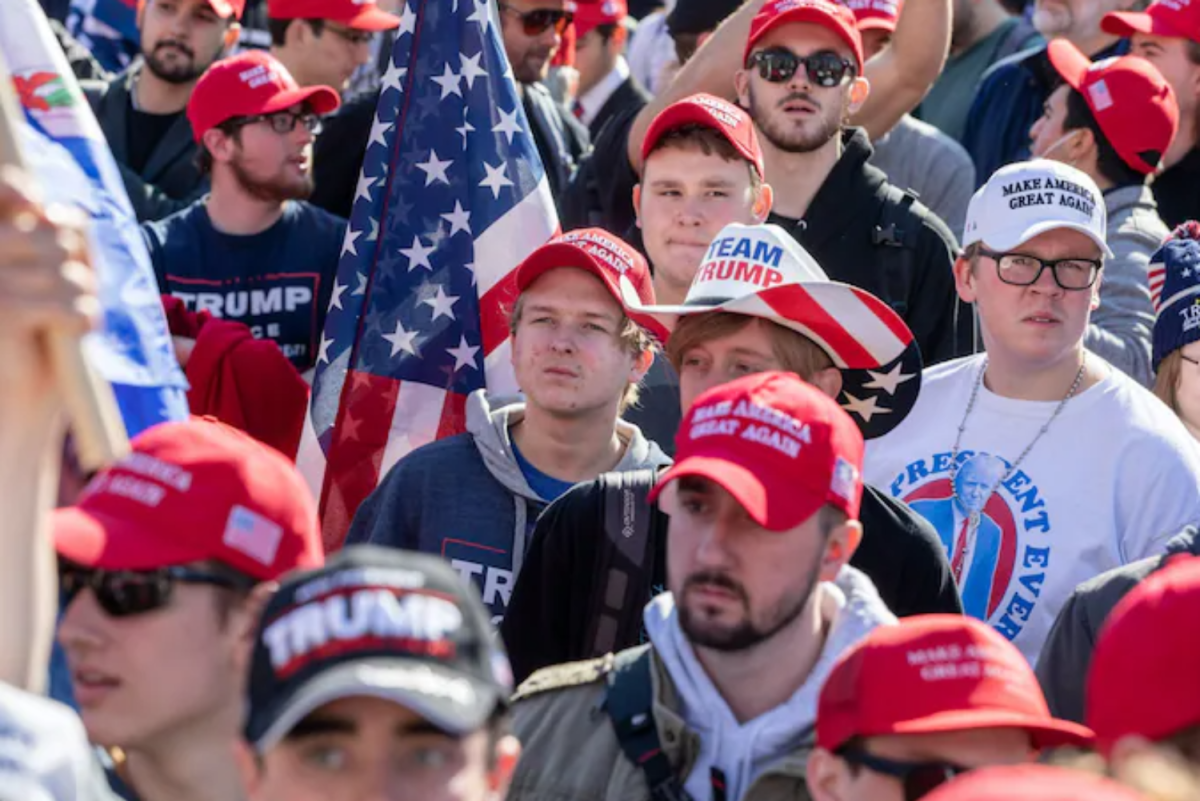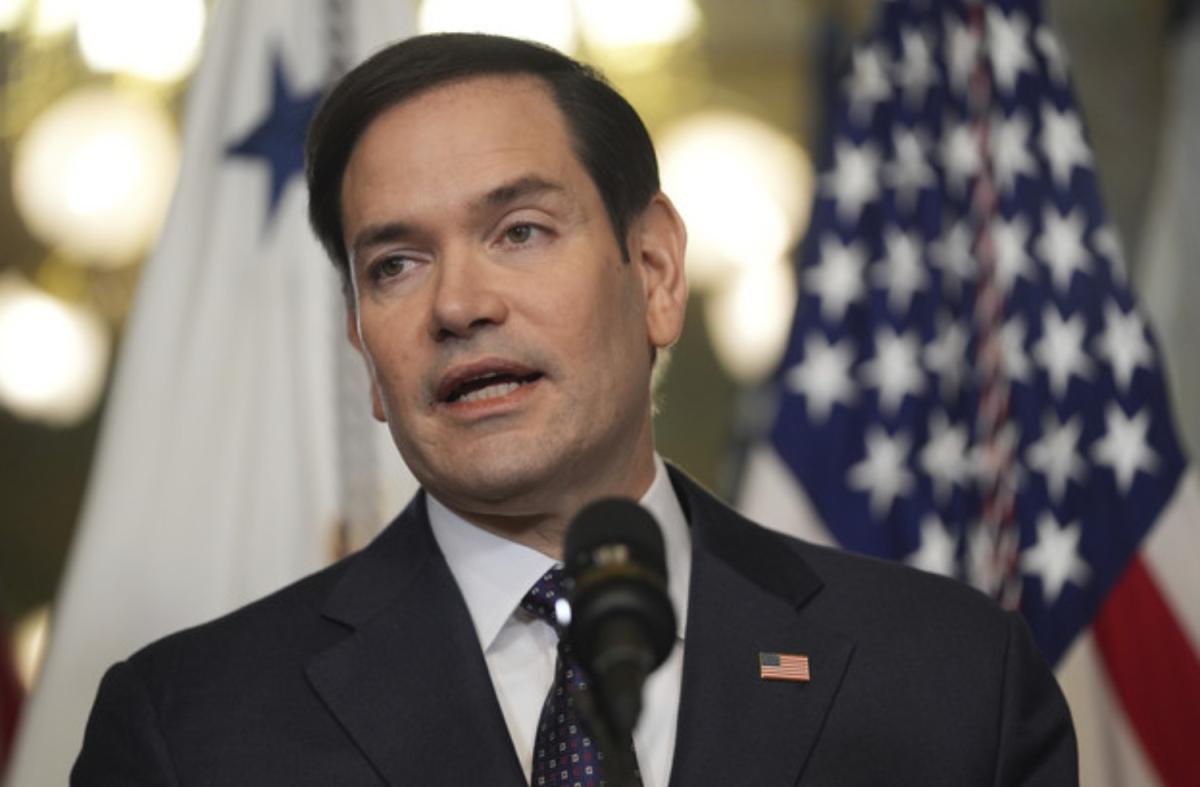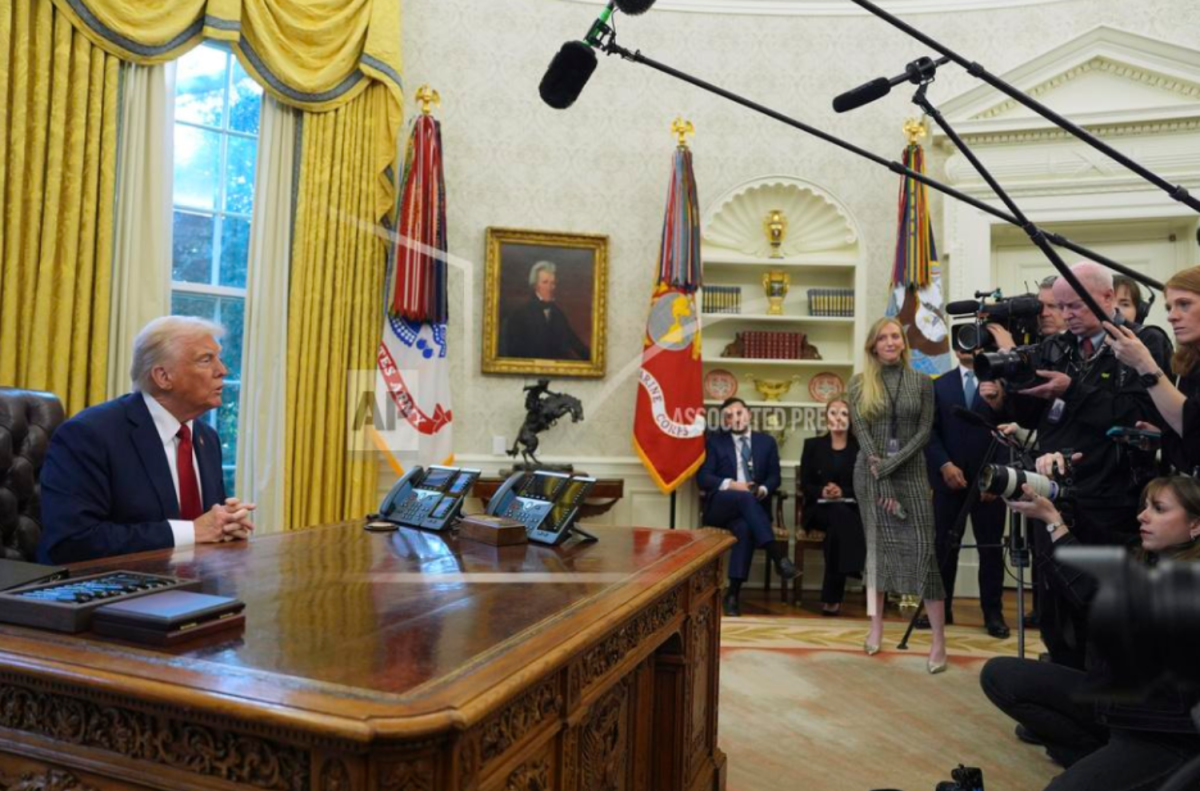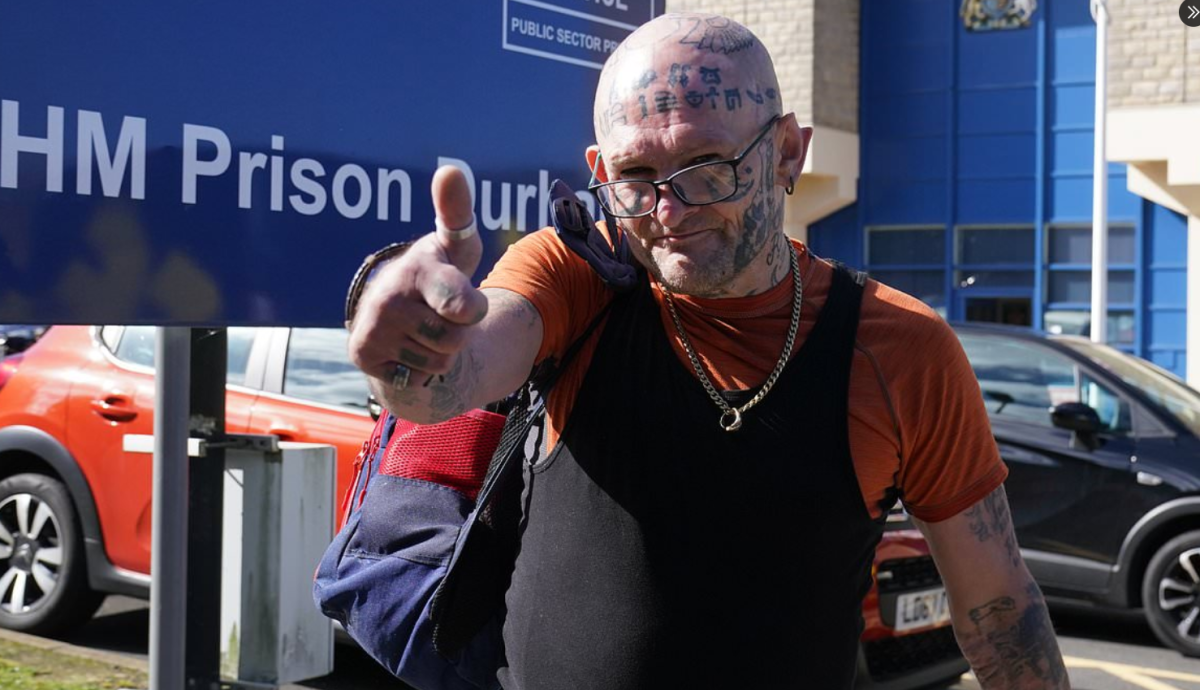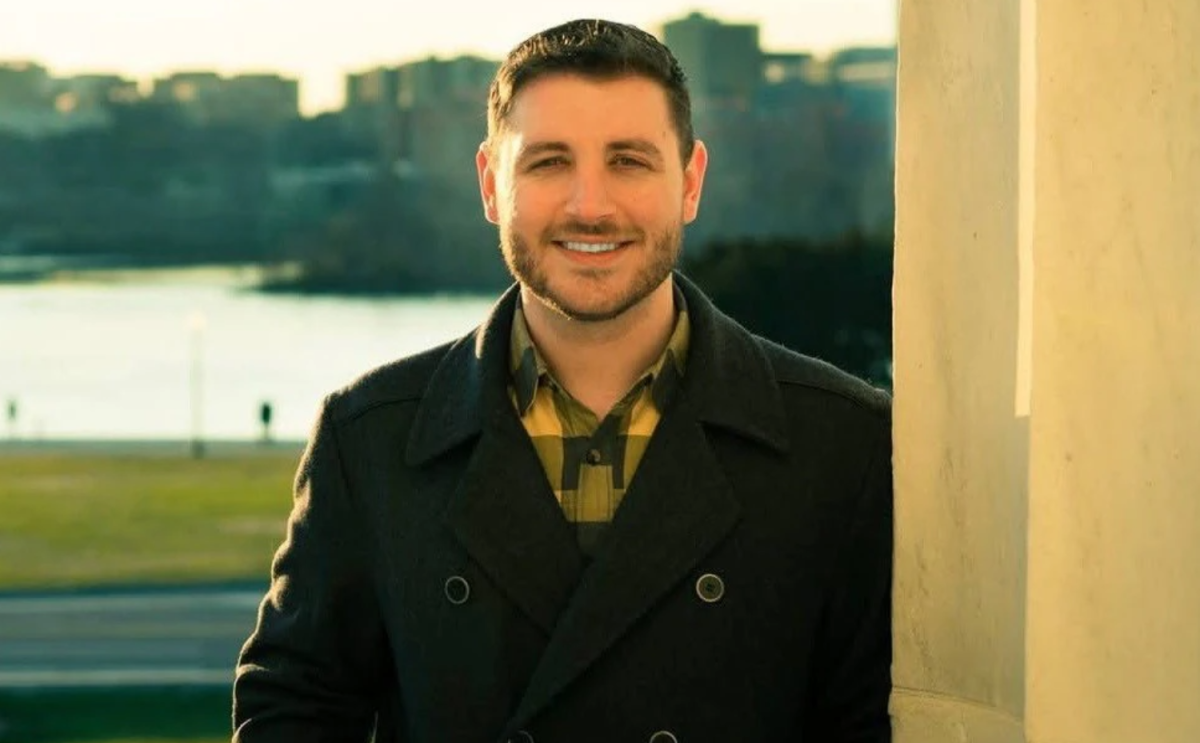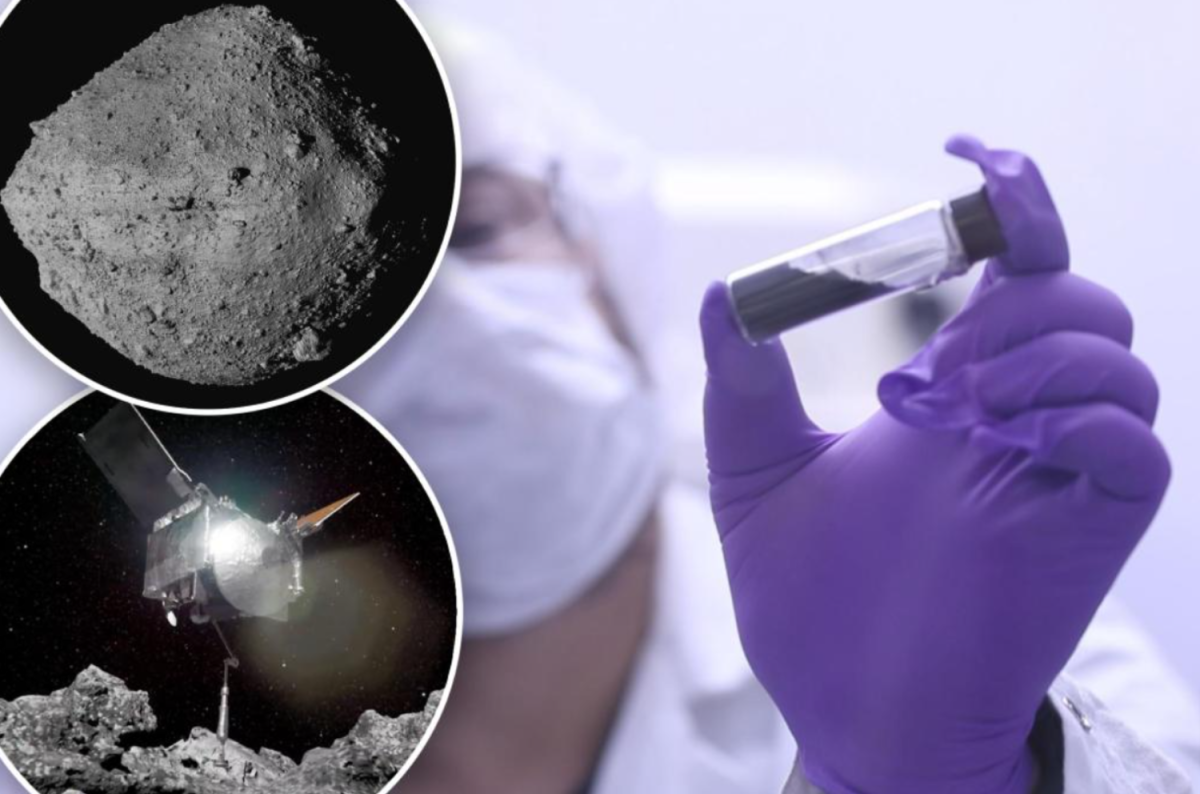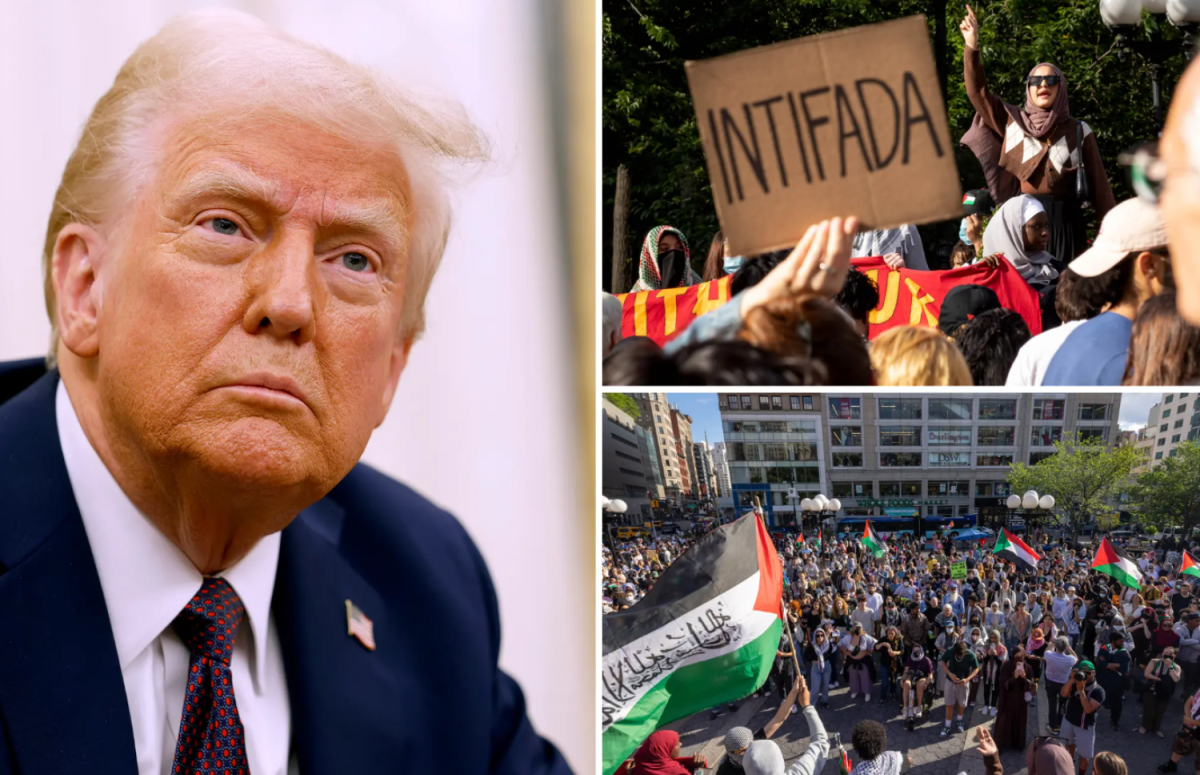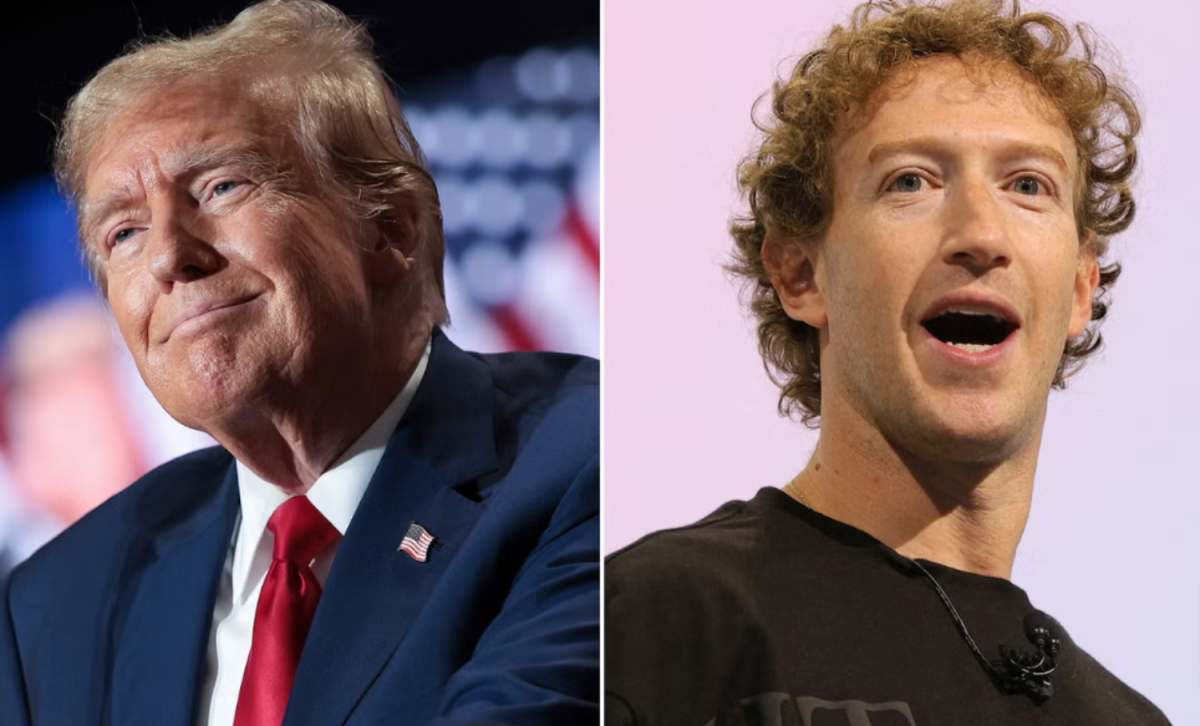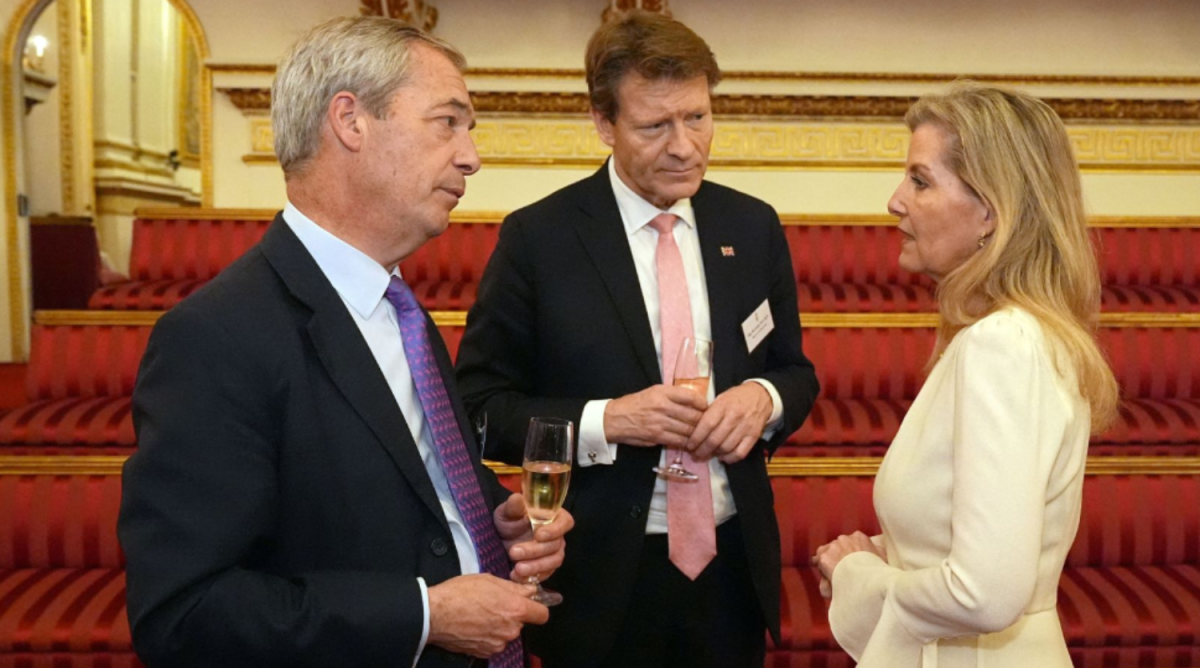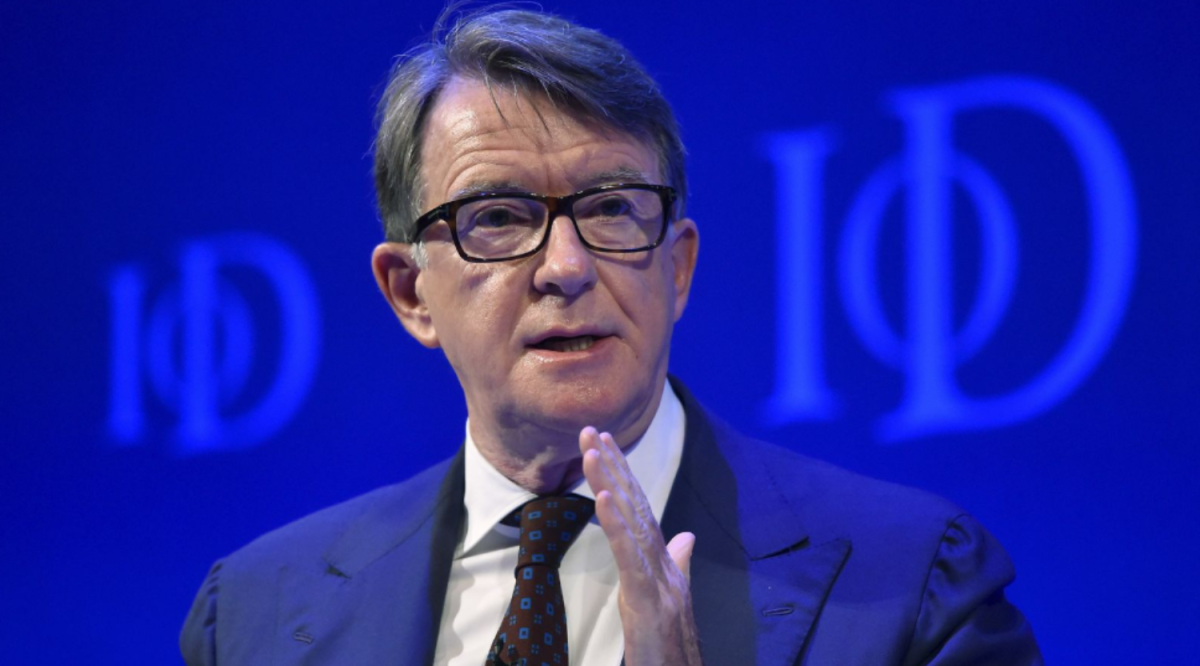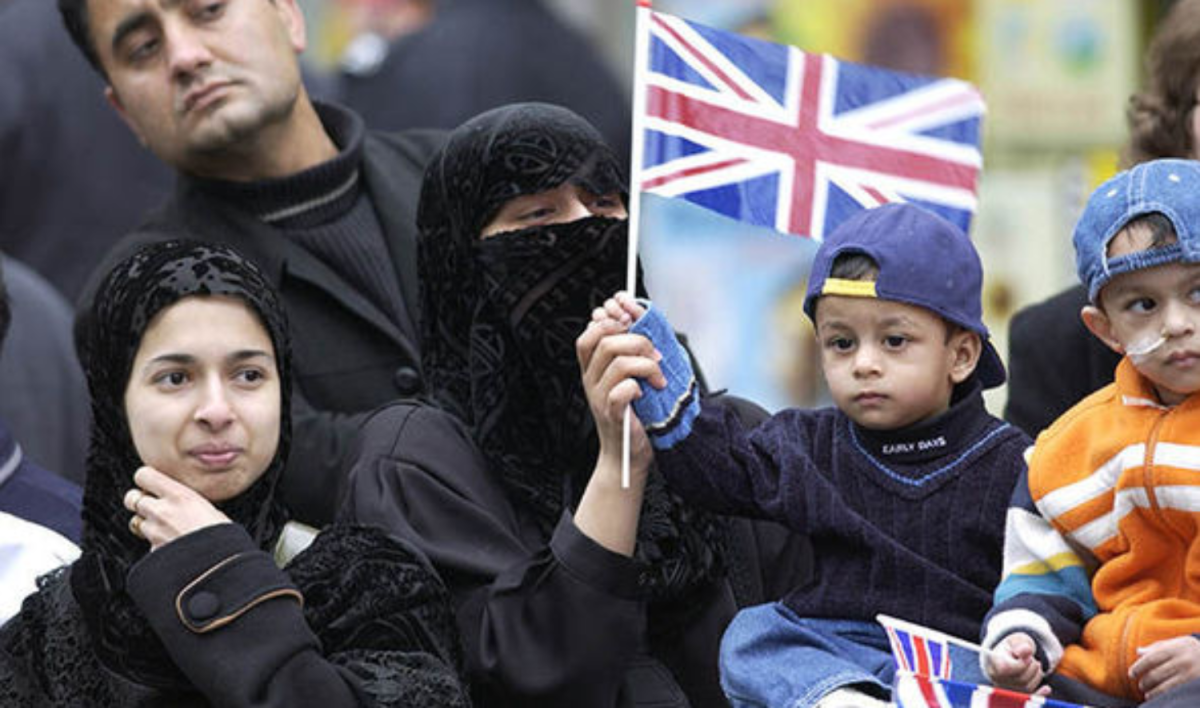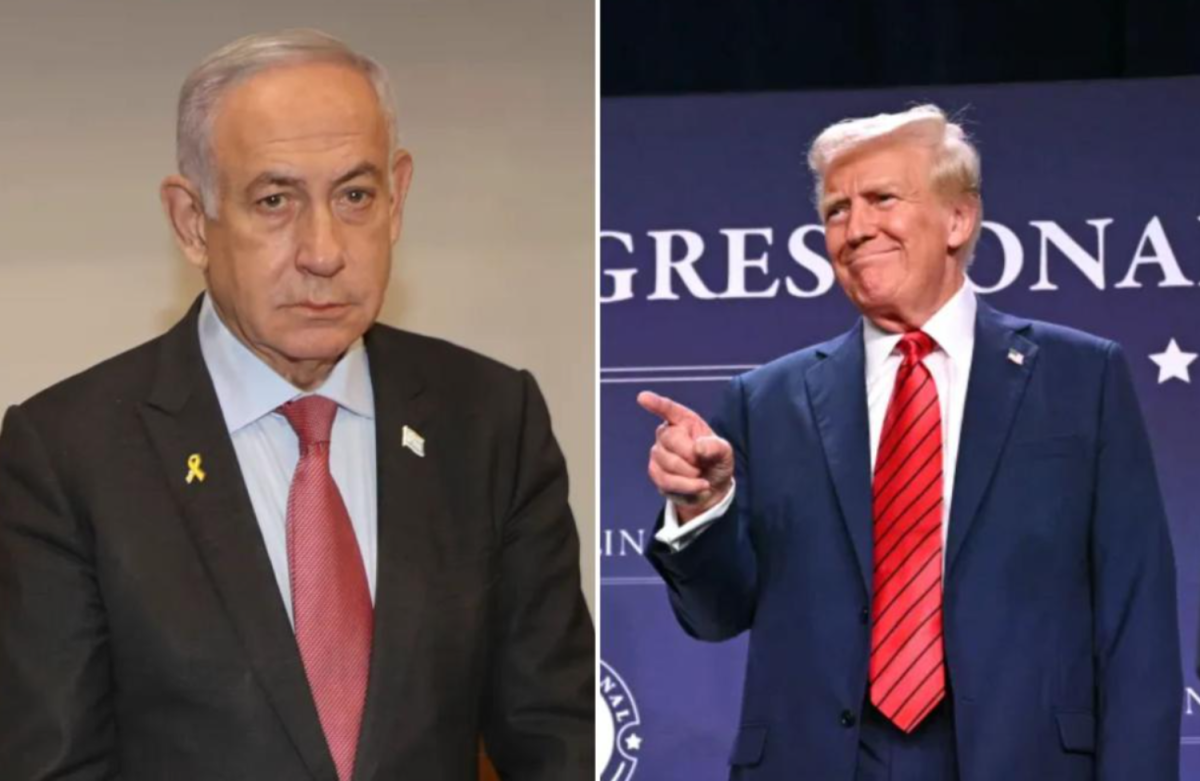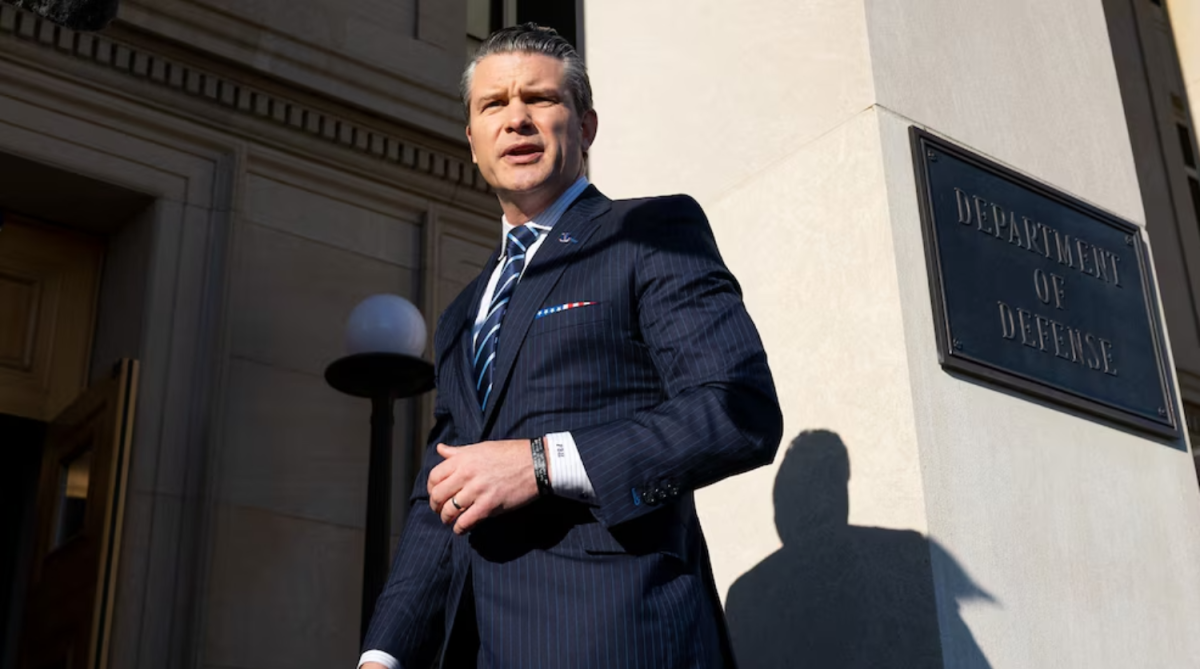-
Posts
9,982 -
Joined
-
Last visited
Content Type
Events
Forums
Downloads
Quizzes
Gallery
Blogs
Everything posted by Social Media
-
The recent killing of U.S. Border Patrol agent David Maland near the Canadian border has uncovered a disturbing web of violence linked to an extremist trans militant cult known as the “Zizians.” Federal authorities had been monitoring two suspects—German national Felix “Ophelia” Bauckholt and University of Washington student Teresa “Milo” Consuelo Youngblut—before the fatal encounter on January 20. The duo was spotted in Vermont with firearms and tactical gear just days before the shooting. During a traffic stop in Coventry, Vermont, Youngblut allegedly opened fire on Maland, killing him instantly. In the ensuing gunfight, border agents shot and killed Bauckholt, while Youngblut was taken into custody. Investigators now say the firearms used in the attack are linked to other homicides and a mysterious leftist trans-led cult known as the "Zizians," whose members follow an elusive leader named Jack LaSota, also known as “Ziz.” Bauckholt, a biological male who identified as female, was a highly intelligent mathematician from Freiburg, Germany. After graduating from the University of Waterloo, he worked as a quantitative trader in New York before becoming involved with the radical group. Youngblut, a biological female identifying as trans, had studied computer science at the University of Washington. Before her arrest, her family had reported her missing, stating she was in a controlling relationship and had cut off contact. Further investigations have linked the Zizians to at least four murders. The group is composed of highly educated trans vegan “rationalists” who hold extreme views on transhumanism and animal rights. Their leader, LaSota, is a biological male identifying as a woman and has been accused of encouraging followers to commit acts of violence. Though some claim LaSota died in 2022, authorities suspect this is a fabricated cover story to evade law enforcement. One of the most shocking revelations in the case is the connection between Youngblut and another alleged cult member, Maximilian Bentley Snyder, a computer science prodigy from Seattle. Snyder was arrested in Vallejo, California, for allegedly murdering 82-year-old Curtis Lind, a key witness in a separate attempted murder trial involving the Zizians. Lind had survived a brutal sword attack in 2022, in which he killed one of his assailants, but was set to testify against two other cult members. Prosecutors allege Snyder killed him to silence him before the trial. Investigators are also scrutinizing Michelle Jacqueline Zajko, a bioinformatics researcher and self-identified nonbinary trans person, for their possible role in supplying firearms to Youngblut and Bauckholt. Zajko’s parents were found dead in Delaware County, Pennsylvania, in 2023 under suspicious circumstances, and Zajko has documented ties to LaSota and the cult. The discovery of a box truck used as a makeshift commune in North Carolina further highlights the group’s secretive lifestyle. Bauckholt and Youngblut had been living there with other members before their trip to Vermont. At their Airbnb rental, police discovered night-vision goggles, body armor, ammunition, and electronic devices wrapped in foil—possibly to evade surveillance. As details of the cult’s activities emerge, some trans activist groups are pressuring members not to cooperate with law enforcement. Online supporters have even cheered the deaths of victims, with one social media post responding to Lind’s murder by declaring, “Ladies and gentlemen, we got him.” The Zizian cult’s ideology, combined with its members’ technical expertise and militant tactics, makes it a growing concern for law enforcement. With Youngblut in custody and Snyder facing trial, investigators are racing to uncover the full extent of the group’s activities before more lives are lost. Based on a report by NYP 2025-02-01
-
Elon Musk has dismissed the notion that Donald Trump could halt the growth of electric vehicles, asserting that their success is "inevitable." The billionaire entrepreneur likened the decline of traditional internal combustion engines to the historical transition from horse-drawn transport to automobiles. Musk, the CEO of Tesla, stated that the primary challenge once holding back electric vehicles—their range—has now been resolved. Addressing investor concerns over Trump’s intent to reverse Joe Biden’s electric vehicle policies, Musk remained firm in his confidence. “At this point, I think that sustainable transport is inevitable,” he said. “I’m highly confident that all transport will be autonomous electric, including aircraft, and that it’s simply – it can’t be stopped any more than one could have stopped the advent of the external combustion engine, steam engine, or one could have stopped the advent of the internal combustion engine.” Drawing a parallel to the past, he added: “Like even if you’ve been the biggest horse advocate on Earth, like ‘horses are the way, not these newfangled car automobiles,’ you can’t stop the advent of the automobile. It’s going to happen. And you can’t stop the advent of electric cars. It’s going to happen. The only thing holding back electric cars was range, and that is a solved problem.” Musk’s stance has raised questions about his support for Trump, given concerns that the former president’s opposition to electric vehicle mandates and subsidies could negatively impact Tesla’s sales. On his first day in office, Trump signed an executive order revoking Biden’s plan for 50% of all car sales to be electric by 2030. He also called for the elimination of tax credits that effectively provided a $7,500 (£6,000) subsidy on new electric cars, though doing so may require legislative approval from Congress. Despite this, Musk has publicly opposed such subsidies, arguing that removing them would primarily benefit Tesla. The company is widely considered to be in a stronger position than many of its competitors, which have made slower progress in the electric vehicle sector. Tesla’s long-term advantage, according to Musk, lies not just in its electric vehicle technology but in its advancements in self-driving capabilities. “There is a path where Tesla is worth more than the next top five companies combined ... and that is overwhelmingly due to autonomous vehicles and autonomous humanoid robots,” he told investors. However, Tesla faced a slight decline in sales in 2024 as the electric vehicle boom showed signs of slowing. In the U.S., electric vehicle sales increased by just 7.3% last year to 1.3 million, accounting for 8.1% of total car sales—only a marginal increase from 7.8% in 2023. Tesla’s chief financial officer, Vaibhav Taneja, acknowledged that tariffs could impact the company’s profitability. Nevertheless, he pointed out that Tesla has made strides in improving manufacturing efficiency, which has helped lower production costs and keep the company in a strong competitive position. Based on a report by Daily Telegraph 2025-02-01
-
Britain today is not merely experiencing a crisis of politics, but a deeper crisis of legitimacy. The challenge isn’t finding examples to illustrate this—it’s narrowing them down. Take immigration: despite multiple electoral mandates to reduce numbers in 2010, 2015, 2016, 2017, and 2019, Boris Johnson’s administration introduced policies that saw net migration soar to 906,000. Or consider the asylum system, where Channel-crossing migrants are placed in taxpayer-funded hotels and given priority access to the NHS, while waiting lists for British citizens have ballooned to 7.5 million cases. Then there is the disturbing reality of grooming gangs operating for years with the full knowledge of authorities who feared intervention might incite social unrest. Some parents attempting to rescue their daughters were even arrested, while police found time to pursue individuals making “offensive” online comments about convicted criminals. Crime more broadly presents a dismal picture, with law enforcement failing to solve a single burglary, personal theft, or stolen bike case in 30% of the country. Economic underperformance may be the most pressing concern of all. Real wages remain below their 2008 peak, inflation has battered economies worldwide, the tax burden has reached a 70-year high, and house prices have skyrocketed. The median home in England and Wales now costs over eight times the average income—compared to 3.5 times in the late 1990s. According to the Resolution Foundation, a young household in 1997 could save for a deposit in around three years with 5% of their income; today, two young graduates would need closer to 14 years. Given this reality, young people’s growing disillusionment with democracy should not come as a shock. Support for democratic governance has been declining across the Anglosphere for decades, both within and between generations. Generation Z finds itself governed by a system that appears indifferent to their interests and incapable of meaningful change. The democratic process is functioning as designed—just not in their favor. So far, the backlash has largely been limited to disgruntled polling responses and online rhetoric. However, an increasingly frustrated generation shut out of homeownership and burdened by rising costs poses a long-term risk to stability. With little to lose, they may be more willing to take a chance on radical alternatives. If liberal democratic capitalism is mired in stagnation, a system that is less liberal and less democratic could become more appealing. This could manifest as support for a strong American-style leader, inspired by Donald Trump’s executive orders. It might lead to another surge in support for a Jeremy Corbyn-like figure, promising sweeping nationalizations and council housing. Or it could take an even more drastic form. If politicians want to prevent this, they should stop asking what young people can do for the state—and start asking what the state has done for them. Based on a report by Daily Telegraph 2025-02-01
-
The notion of the United States purchasing Greenland is no laughing matter, according to Secretary of State Marco Rubio, who reinforced former President Donald Trump’s push for acquiring the Danish territory. In one of his first media appearances since taking office, Rubio made it clear that the idea was not a joke, but rather a matter of national interest. “This is not a joke,” Rubio stated during an interview on *The Megyn Kelly Show* on SiriusXM. “This is not about acquiring land for the purpose of acquiring land. This is in our national interest and it needs to be solved.” While Trump had previously suggested that military force against Denmark, a NATO ally, could be an option to secure Greenland, Rubio sought to downplay that possibility. However, he stopped short of ruling it out completely. He defended Trump’s approach, describing it as a strategic negotiation tactic. “He is not going to begin what he views as a negotiation or a conversation by taking ... leverage off the table, and that’s a tactic that’s used all the time in business,” Rubio explained. “It’s being applied to foreign policy and I think to great effect in the first term.” The former president had a tense conversation with Denmark’s Prime Minister Mette Frederiksen earlier this month regarding his interest in purchasing the vast Arctic island. Frederiksen reaffirmed Greenlandic Prime Minister Múte Egede’s stance that the territory was not for sale. Despite this firm position from Greenland’s leadership, Rubio argued that the United States must not back down, emphasizing Greenland’s strategic importance. He pointed to the region’s changing environment as a key factor, predicting that the Arctic would become crucial for global shipping routes as ice continues to melt. Rubio also warned that failure to act could lead to China gaining a foothold in Greenland, a scenario he deemed dangerous for U.S. interests. “So the question becomes, if the Chinese begin to threaten Greenland, do we really trust that that is not a place where those deals are going to be made?” Rubio asked. “Do we really trust that that is not a place where they would not intervene, maybe by force?” His comments underscored a broader concern about geopolitical influence in the Arctic. As the region becomes more accessible due to climate change, the competition for control and influence over its resources and strategic location is intensifying. While Greenland’s leaders have repeatedly made it clear that they are not interested in selling the territory, the discussion remains a point of contention between the U.S. and Denmark. Whether the Trump-era idea will be revived in the future remains uncertain, but Rubio’s statements signal that it is far from being dismissed as a mere passing remark. Based on a report by Politico 2025-02-01
-
Former President Donald Trump announced that his administration will proceed with imposing 25 percent tariffs on goods imported from Mexico and Canada, making good on a threat he first issued during the final days of his 2024 campaign. The decision, set to take effect on Saturday, is aimed at addressing what Trump described as unfair trade practices, an influx of migrants at the southern border, and the flow of fentanyl into the United States. “We’ll be announcing the tariffs on Canada and Mexico for a number of reasons,” Trump told reporters in the Oval Office. He emphasized the U.S. trade deficit with its neighbors, stating, “I’ll be putting the tariff of 25 percent on Canada and Mexico, and we will really have to do that because we have very big deficits with those countries. Those tariffs may or may not rise with time.” Trump also revealed that his administration was considering including oil in the list of tariffed goods, with a final decision expected later that evening. “We may or may not. We’re going to make that determination, probably tonight, on oil. Because they send us oil, we’ll see. It depends on what the price is. If the oil is properly priced, if they treat us properly, which they don’t,” Trump said. He further justified the tariffs by accusing both Canada and Mexico of exploiting the United States in trade agreements. “Look, Mexico and Canada have never been good to us on trade,” he said. “They’ve treated us very unfairly on trade, and we will be able to make that up very quickly because we don’t need the products that they have.” Trump originally issued the tariff threat in response to what he described as Mexico’s failure to curb illegal immigration at the U.S.-Mexico border. While initially targeting Mexico, he later expanded his proposal to include Canada and even China. Both Mexico and Canada are among the United States' largest trading partners, and economic experts have warned that these tariffs could lead to increased prices for American consumers on a variety of goods. However, they also suggested that while American industries may face short-term disruptions, Mexico and Canada’s economies could suffer more in the long run if a prolonged trade war ensues. Despite these warnings, Trump remained steadfast in his stance, making it clear that his administration is prepared to use tariffs as a tool to reshape trade relationships. Whether these measures will result in renegotiations with America’s neighbors or escalate tensions further remains to be seen. Based on a report by The Hill 2025-02-01
-
The number of former prisoners recalled to jail has surged by over 40 percent following the implementation of early release schemes aimed at reducing overcrowding. Recent figures from the Ministry of Justice (MoJ) reveal that in the three months leading up to September 2024, 9,975 individuals were recalled—an increase of 42 percent compared to the same period the previous year. This spike follows the introduction of an early release program under the previous Conservative government, which was designed to ease pressure on the prison system. The Labour government, led by Sir Keir Starmer, launched its own version of the scheme in September, further allowing inmates convicted of less serious offenses to be freed after serving 40 percent of their sentences, instead of the previous 50 percent. While these measures were introduced to prevent a total collapse of the prison system, they have led to a significant rise in the number of ex-offenders being recalled. Many of these individuals have either reoffended or breached the terms of their licence, raising concerns about the long-term sustainability of the policy. The recall population now makes up one in seven of the 86,000 prisoners in England and Wales. Between October 2023 and September 2024, a total of 13,382 prisoners were released up to 70 days early under the Conservative government’s end of custody supervised licence (ECSL) program. Since Labour came into power, more than 3,000 additional prisoners have been released under the new standard determinate sentences 40 (SDS40) scheme. The latest data shows that 73 percent of recalls between July and September 2024 were due to non-compliance with licence conditions, while 35 percent stemmed from failure to keep in contact with authorities. Additionally, 23 percent of recalled individuals did not reside at their agreed address, and nearly a quarter—24 percent—were sent back after committing new crimes. According to probation leaders, housing instability plays a crucial role in whether an ex-prisoner is recalled. Reports indicate that up to a fifth of those released do not have secure accommodation, making it significantly harder for them to reintegrate into society. Chief Inspector of Probation Martin Jones has attributed the growing recall population to “excessive” licence conditions, which he says often remain in place for extended periods. He has called for greater efforts to ensure released prisoners have stable housing, warning that the likelihood of reoffending doubles for those without a home. As concerns mount over the effectiveness of the current system, the MoJ has launched a sentencing review, led by former Conservative justice secretary David Gauke, to examine whether it should be made easier and quicker for recalled prisoners to be re-released. Prime Minister Sir Keir Starmer has placed blame on the previous government for the ongoing prison crisis, stating, “We have to release people early because otherwise we’ll have an absolute crisis in our prisons.” An MoJ spokesperson reinforced the government's stance, saying, “Public protection is our number one priority and we do not hesitate to recall offenders back to prison if they break the rules or their risk cannot be safely managed in the community.” With prison capacity stretched to its limits and the number of recalls climbing, the government now faces a difficult balancing act between maintaining public safety and managing the growing strain on the justice system. Based on a report by Daily Telegraph 2025-02-01
-
For a moment, imagine the anguish of Meirav Berger, the mother of Agam Berger. Nearly five hundred days ago, Agam, then just 19 years old, was taken hostage by Hamas. The terrorists, proud of their brutal act, broadcasted footage of Agam’s battered face, drenched in the blood of her young friends who had just been executed in their pyjamas before her eyes. Can anyone truly grasp the horror and helplessness Meirav must have felt, seeing her daughter’s petrified eyes? Agam and her fellow young conscripts—Naama Levy, Daniella Gilboa, Liri Albag, and Karina Ariev—were among the “lucky” ones who survived the massacre at the Nahal Oz base on October 7, 2023. They had been on their first days of compulsory national service as unarmed border observers when the attack unfolded. In 2014, Michelle Obama launched the global “Bring Back Our Girls” campaign for the 200 Nigerian schoolgirls kidnapped by Islamic militants. But when over 250 people were abducted on October 7, there was no such outpouring of outrage. Celebrities and politicians, with a few rare exceptions, remained conspicuously silent. Now, at last, these young women are home—words their families feared they might never be able to say. But over 80 hostages remain trapped in captivity. The question remains: why did it take this long? Why were these mothers forced to expose their raw suffering to a world that seemed indifferent? Where were the marches, the protests, the outcry for their daughters? How much longer must this war continue before all the hostages are freed? And when will the world finally, unequivocally, condemn the monstrous act of abducting innocent men, women, and children simply because they are Jewish? Based on a report by Daily Mail 2025-02-01
-
An aspiring air traffic controller who says he was denied a job due to diversity-driven hiring practices has spoken out following the tragic collision between American Airlines Flight 5342 and a Black Hawk helicopter in Washington. Andrew Brigida, 35, who excelled in his training exams but was rejected for an air traffic control position, claims the Federal Aviation Administration (FAA) prioritized diversity over competence, making a disaster inevitable. Brigida, who has joined a class-action lawsuit against the FAA, believes years of hiring practices aimed at increasing diversity rather than merit have contributed to safety risks in the aviation industry. “You want to hire the best and the brightest for this kind of job because it is a very stressful job and it can take a toll on you, age you prematurely,” he told The Telegraph. “You want to make sure that the people that are doing it are the best.” As investigations continue into the disaster, which claimed the lives of 67 people, new details have emerged about the night of the crash. Reports indicate that an air traffic controller left their post early, leaving just one person responsible for overseeing both helicopter and plane traffic—normally a task handled by two individuals. The FAA acknowledged that staffing levels at the time were “not normal for the time of day and the volume of traffic.” Authorities have recovered the black boxes from both the passenger jet and the helicopter and are analyzing flight data and audio recordings. A preliminary report is expected within 30 days. Meanwhile, more victims have been identified, including the American Airlines flight crew. Captain Jonathan Campos, 34, and First Officer Samuel Lilley, 28, were confirmed among the deceased, along with flight attendants Ian Epstein, 52, and Danasia Elder. Onboard the Black Hawk, Crew Chief Ryan O’Hara and Chief Warrant Officer 2 Andrew Eaves were named, though the female pilot’s identity has not yet been released. Brigida graduated from Arizona State University’s collegiate training initiative in 2013, a program designed to train and recruit top candidates for the FAA. After scoring 100 percent on his selection exam, he was placed on a preferred candidate list. However, the FAA later changed its hiring process, implementing a biographical questionnaire instead of a skills-based test to attract a more diverse applicant pool. When Brigida reapplied, he claims he failed the questionnaire because he “didn’t fit the preferred ethnic profile.” Former President Donald Trump also weighed in, blaming the FAA’s hiring policies for the fatal collision. He alleged that individuals with “severe intellectual and psychiatric disabilities” had been recruited as air traffic controllers, suggesting that political decisions had compromised aviation safety. Brigida believes past administrations contributed to the air traffic control staffing crisis by failing to act despite numerous warning signs. “There have been plenty of stories of near miss events that have been the cause of staffing issues, it’s surprising that it’s gone on this long without being properly recognised by the government,” he said. The lawsuit against the FAA, filed by attorneys from Mountain States Legal Foundation, represents over 2,500 aspiring air traffic controllers who argue that they were unfairly rejected due to the agency’s race-based hiring policies. As the investigation into the crash continues, critics argue that the FAA must reconsider its approach to hiring in order to prevent further tragedies. Based on a report by Daily Telegraph 2025-02-01
- 131 replies
-
- 10
-

-

-

-
Update: Washington DC plane crash live: US army helicopter ‘was off course’ Black Hawk aircraft was allegedly at least 100 feet higher than permitted and was half-a-mile off its agreed flight path when the collision happened over the Potomac. The US army helicopter reportedly deviated from its approved flight path, it has emerged. The Black Hawk pilot asked air traffic control for permission to use a specific, predetermined route that lets helicopters fly no higher than 200 feet. This route — referred to as Route 4 at Reagan international airport — hugs the east bank of the Potomac, which would have meant it avoided the American Airlines plane. The helicopter pilot confirmed visual sight of the plane and the air traffic controller instructed the helicopter pilot to follow the route and go behind the plane. But he did not follow the intended route, the New York Times reported, citing four people briefed on the matter said. Rather, the helicopter was above 300 feet, not below 200 feet, and was at least half-a-mile off the approved route when it collided with the jet. Source https://www.thetimes.com/us/news-today/article/dc-plane-crash-trump-dei-victims-pilot-latest-news-9hprgjlgw If you wish to discuss Trump please do so in a separate topic here: https://aseannow.com/topic/1350364-trump-keen-to-blame-diversity-and-inclusion-for-washington-dc-crash/
-

Israel Hamas War the Widening Middle East Conflict
Social Media replied to Social Media's topic in The War in Israel
UPDATE: Three Israeli hostages who will be released on Saturday have been named by Hamas. They are Keith Samuel Siegel, Yarden Bibas and Ofer Kalderon. -

Thai Hostages Freed: Five Safely Released from Gaza
Social Media replied to webfact's topic in Thailand News
@Neeranam I have had to remove one post already for making false claims. No more leeway. -
Marianne Faithfull, the legendary singer and actress, has passed away at the age of 78, her spokesperson has confirmed. Born in Hampstead in December 1946, Faithfull rose to fame in the 1960s with her hit song *As Tears Go By*, which reached the UK top 10 in 1964. She also starred in films such as *The Girl On A Motorcycle* (1968), cementing her place as a cultural icon of the era. In addition to her artistic success, she was widely known for her relationship with Rolling Stones frontman Mick Jagger, inspiring classic songs like *Wild Horses* and *You Can't Always Get What You Want*. Jagger paid tribute, calling her "a wonderful friend, a beautiful singer and a great actress," adding that he was "so saddened" by her passing. Keith Richards shared that he was "so sad" and that he "will miss her." Rolling Stones guitarist Ronnie Wood also honored her memory, posting an old studio photo of himself with Faithfull and Richards, captioned "Farewell dear Marianne," followed by a more recent image with the message, "Marianne will be dearly missed. Bless her xx." Faithfull’s spokesperson released a statement confirming her peaceful passing in London, surrounded by her loving family. "She will be dearly missed," the statement read. Throughout her life, Faithfull faced significant health challenges, including bulimia, breast cancer, and emphysema caused by decades of smoking. In 2020, she contracted Covid-19 and was hospitalized for 22 days. Doctors did not expect her to survive, yet she defied the odds and released her 21st album, *She Walks in Beauty*, a year later. Faithfull's career was a testament to resilience. She was discovered at 16 by the Rolling Stones’ manager and became a key figure in the "British Invasion" of the U.S. pop charts with her ethereal, folk-pop style. However, it was her later reinvention that truly defined her artistic legacy. In recent years, she collaborated with songwriters like PJ Harvey and Nick Cave, both of whom regarded her as a major influence. Other artists she worked with over the years included David Bowie, Lou Reed, Jarvis Cocker, Damon Albarn, Emmylou Harris, and Metallica. Lars Ulrich, Metallica’s drummer, expressed his gratitude for Faithfull’s "incredible and unique contribution to our music, and for always being so willing to join us in performing it." Her remarkable life and career spanned decades, from the youthful innocence of the 1960s to the haunting, mature artistry of her later years. Marianne Faithfull leaves behind a legacy of music, resilience, and cultural influence that will endure for generations. Based on a report by BBC 2025-01-31
-

Migrants in UK: The Challenge of Integration
Social Media replied to Social Media's topic in World News
Off topic image of an ex uk model with plastic surgery removed and some off topic troll posts @MalcolmB Migrants in UK: The Challenge of Integration -
For the first time, scientists have discovered the fundamental ingredients for life on a distant asteroid, according to NASA. A detailed analysis of debris collected from Bennu, an asteroid nearly 5 billion years old, suggests that the essential components for life on Earth existed in the early solar system. These findings, published in the journal Nature Astronomy, mark a significant breakthrough in understanding how life may have originated. In 2023, we brought a sample of an asteroid called Bennu to Earth, part of a plan to study remnants of our early solar system. These grains of rock have shown that the building blocks of life and the conditions for making them existed on Bennu's parent body 4.5 billion years ago. The OSIRIS-REx spacecraft harvested the sample from Bennu in 2020 and returned it to Earth in 2023. Upon examination, researchers found that the asteroid fragments contained all five nucleobases—the essential “letters” that make up DNA and RNA—as well as 11 unique mineral compounds, which had not been identified in any previous studies of space rocks. Analysis of the samples showed that evaporated water had created a briny, primordial “broth” on Bennu’s parent body. This environment allowed the elemental precursors of life to interact and form increasingly complex structures. These residual brine deposits are reminiscent of the salt crusts found in dried-up lakebeds on Earth, but Bennu’s chemical signatures date back 4.6 billion years—predating its formation by around 100 million years. “These grains of rock have shown that the building blocks of life and the conditions for making them existed on Bennu’s parent body 4.5 billion years ago,” NASA’s Goddard Space Flight Center stated on X (formerly Twitter). This discovery suggests that the fundamental ingredients for life could have been widespread throughout the galaxy, raising the possibility that planets and moons far from the Sun may have had similar conditions. “NASA’s OSIRIS-REx mission already is rewriting the textbook on what we understand about the beginnings of our solar system,” said Nicky Fox, associate administrator of the Science Mission Directorate at NASA Headquarters in Washington. “Asteroids provide a time capsule into our home planet’s history, and Bennu’s samples are pivotal in our understanding of what ingredients in our solar system existed before life started on Earth.” Bennu may not be the only cosmic body to contain these key components of life. Scientists believe that other celestial objects, such as the dwarf planet Ceres and Saturn’s icy moon Enceladus, may also harbor similar briny deposits. Notably, sodium carbonate—an important chemical compound linked to prebiotic chemistry—has already been found on Enceladus. Meanwhile, researchers in the UK recently confirmed the presence of a “super-Earth” located 20 light-years away in a habitable zone, meaning it is at the right distance from its central star to potentially sustain liquid water. While Bennu’s sample provides compelling evidence of life’s fundamental ingredients, scientists have yet to determine whether this asteroid’s chemical interactions could have progressed into more advanced organic structures, similar to the evolution of life on Earth. “We now know we have the basic building blocks to move along this pathway towards life, but we don’t know how far along that pathway this environment could allow things to progress,” McCoy stated. The discovery of life’s essential ingredients on Bennu offers a new perspective on how the origins of life may not have been exclusive to Earth. It also deepens the ongoing search for life beyond our planet, strengthening the case for further exploration of asteroids and distant worlds that may hold similar secrets. Based on a report by NYP 2025-01-31
-
President Donald Trump is set to sign an executive order Wednesday directing federal agencies to identify all civil and criminal measures available to combat antisemitism, including potential deportation for non-citizens involved in anti-Jewish activities. According to a document outlining the order, agency and department leaders will have 60 days to provide recommendations to the White House. The Justice Department is expected to investigate pro-Hamas graffiti and acts of intimidation, particularly on college campuses, as part of the administration’s broader effort. The House GOP report accused the Biden administration, particularly the State Department and the Department of Homeland Security, of obstructing records requests regarding the number of visa holders involved in anti-Israel protests. During his campaign, Trump called for the deportation of pro-Hamas students in the U.S. on visas, a stance reinforced last week by an executive order aimed at addressing national security concerns. That order included language asserting that the U.S. must "ensure that admitted aliens and aliens otherwise already present in the United States” do not support designated foreign terrorist organizations, though the precise legal implications remain unclear. The issue of free speech protections has been a focal point in the debate. During a congressional hearing in December 2023, university presidents faced intense scrutiny from Rep. Elise Stefanik (R-NY), Trump’s nominee for UN ambassador, after refusing to state whether calls for the genocide of Jews constituted punishable conduct. Their responses suggested concerns over First Amendment protections. Although hate speech is generally legal in the U.S., the recent House GOP report argues that federal law prohibits institutions receiving taxpayer funds from tolerating discrimination, potentially allowing the government to enforce stricter policies against antisemitism. Legal precedents also suggest that non-citizens have fewer speech protections than U.S. citizens. The 1972 Supreme Court case Kleindienst v. Mandel upheld the government's right to deny a visa to a Belgian Marxist, and prior rulings have affirmed the deportation of non-citizens affiliated with anarchist and Communist movements. Some of the most visible pro-Hamas activism in the U.S. occurred in Washington, D.C., where demonstrators carried banners in support of the group as Israeli Prime Minister Benjamin Netanyahu addressed Congress in July. One high-profile incident involved Zaid Mohammed Mahdawi, a 26-year-old leader of the Richmond, Va., chapter of American Muslims for Palestine, who was arrested for allegedly climbing atop a Capitol monument and spray-painting “HAMAS IS COMIN.” Trump’s latest executive order, which likely includes provisions for withholding federal funds from non-compliant institutions, comes after his administration attempted to temporarily freeze federal aid and halt the distribution of pending grants. However, a federal judge blocked the pause on grants on Tuesday, indicating potential legal battles ahead. Based on a report by NYP 2025-01-31
-
Former President Donald Trump has reached a $25 million settlement with Meta, resolving a lawsuit he filed in 2021 after the company suspended his Facebook accounts in the aftermath of the January 6 attack on the U.S. Capitol. Trump’s accounts were taken offline following the events of that day, during which his supporters stormed the Capitol in an attempt to overturn Joe Biden’s presidential victory. In the lead-up to the attack, Trump had repeatedly used his social media platforms to claim, without evidence, that the 2020 election had been stolen. On January 6, he urged his followers near the Capitol to “fight like hell.” The settlement, signed Wednesday, comes shortly after Meta CEO Mark Zuckerberg was seen attending Trump’s inauguration alongside other prominent billionaires and tech executives. In recent months, their previously strained relationship appears to have improved, with Zuckerberg dining with Trump at Mar-a-Lago shortly after the election. The meeting was reportedly part of broader efforts to repair ties between Meta and the new administration. According to sources familiar with the agreement, Trump raised the issue of the lawsuit during his dinner with Zuckerberg in November, suggesting that resolving the case would be necessary before he could be “brought into the tent.” Zuckerberg later returned to Florida for a mediation session in early January, during which Trump briefly stepped away to attend proceedings in his hush money trial. As part of its broader outreach, Meta also donated $1 million to Trump’s inaugural fund. Trump’s lawsuit against Meta was one of several legal actions he launched in July 2021, months after leaving office. He also sued Twitter—now known as X under Elon Musk’s ownership—and YouTube, arguing that social media companies had unfairly censored him. His complaint against Meta claimed that widespread online censorship created a "chilling effect" on political, medical, social, and cultural discourse in the United States. Trump’s suspension from Facebook and Instagram followed scrutiny of his role in the January 6 riot, with Meta concluding that his posts violated platform policies. However, the former president has since regained access to his accounts. The settlement marks the latest chapter in Trump’s complex relationship with major tech companies, with both political and business interests shaping the evolving dynamics between the former president and Silicon Valley’s most powerful executives. Based on a report by The Independent 2025-01-31
-
Nigel Farage has revealed that he and King Charles have shared lighthearted moments despite their past differences. The Reform UK leader attended a reception at Buckingham Palace for newly elected MPs, where he mingled with members of the royal family, including Queen Camilla, the Duke and Duchess of Edinburgh, and the Duke and Duchess of Gloucester. Farage acknowledged that he has met the King "many times" and anticipated that their exchanges would be "interesting" given their previous disagreements. Reflecting on their history, he recounted an incident at the European Parliament years ago when King Charles, then Prince of Wales, delivered a speech that received a standing ovation from nearly everyone except Farage himself. "Apart from me, I sat there with arms folded. So we've had a laugh about it ever since, it's not nasty, it's climate change and stuff like that," he said. Beyond his interactions with the King, Farage also commented on other members of the royal family, particularly the Duke and Duchess of Sussex. He suggested that Prince Harry and Meghan Markle’s departure to the United States had left a void that others had to fill. He praised the Duke and Duchess of Edinburgh, calling them "charming" and crediting them with taking on a significant amount of royal duties. "They're doing a lot of the heavy lifting," he said. Asked whether it was his first time meeting them, he responded, "I met them [a] long, long, long time ago. But no, they're charming, and they do a lot of the heavy lifting, because there's one or two gaps out there." Farage also reflected on what he described as "a difficult few years" for the royal family. He pointed out that with the passing of Queen Elizabeth II, King Charles’s health struggles, and Prince Andrew’s absence from public life, the burden of royal responsibilities had fallen on fewer shoulders. "You know, wonder boy and wonder girl disappear off to America, you know, [Queen Elizabeth II] dies, the King's not been well, Andrew's not in the public eye, Princess Anne is 74 or 75 or whatever she is. So they're doing a lot of the heavy lifting. And I think doing it very well." Speaking about his time at the palace, Farage said he also had "a laugh about life" with Prince Edward. He reflected on past receptions, recalling that this was not his first time attending such an event at Buckingham Palace. "It's really funny being at this, because this is not the first one of these I've been to. I came to a reception for new MEPs. So we're going back 26 years, and there were about 30 of us, and that was with [Queen Elizabeth II] and as he was then, the Duke of Edinburgh." Despite past political and ideological differences, Farage’s comments suggested a level of cordiality between him and the King, with mutual understanding allowing them to share a laugh over past disagreements. Based on a report by Sky News 2025-01-31
-
Lord Mandelson has admitted that his past comments about Donald Trump were a mistake, calling his 2019 statement that the former US president was a "danger to the world" both "ill-judged and wrong." The remarks come as the former Labour minister prepares to take on the role of the UK’s ambassador to the United States, though speculation has arisen about whether President Trump will accept his appointment. Speaking to Fox News, Mandelson distanced himself from his previous criticisms, acknowledging a shift in both public perception and his own views. "I consider my remarks about President Trump as ill-judged and wrong," he said. "I think times and attitudes towards the president have changed since then. I think people have been impressed, not just by the extraordinary second mandate that he has received from the American people, but the dynamism and energy with which he approached not just the campaign but government as well." Mandelson’s past remarks about Trump were starkly different. In a 2019 interview on the Alain Elkann Interviews podcast, he described Trump's beliefs as "an anathema to mainstream British opinion." He added, "Even those who have a sneaking admiration for Donald Trump because of his personality, nonetheless regard him as reckless, and a danger to the world." He also previously accused Trump of being "little short of a white nationalist and a racist," and criticized his approach toward the UK’s ambassador at the time. Now, however, Mandelson is adopting a far more conciliatory tone. He has not only walked back his past remarks but has also gone as far as praising Trump’s leadership qualities. "He is a nice and fair-minded person," Mandelson said, adding that Trump could become "one of the most consequential American presidents I have known in my adult life." He also praised Trump's governance, stating, "I think that with the approach he is taking to government, which frankly just seems to us in Britain so much more organised, it's so much more coherent, he seems to be so much more clear in what he wants to do, we take encouragement from that, that gives us greater confidence." With Mandelson now set to represent the UK in Washington, his shift in tone is likely a strategic move to ensure smooth diplomatic relations between the two nations. Whether Trump will accept his appointment remains to be seen, but his remarks mark a significant departure from his previously harsh stance on the US president. Based on a report by Sky News 2025-01-31
-
By the 1980s, Britain had emerged as a relatively civilised and cohesive society, but some of those hard-won social advances now appear to be under strain. A recent case highlights this concern: a sexagenarian was arrested for allegedly using wigs and disguises to take British citizenship tests on behalf of over a dozen applicants. This incident suggests that some individuals are so determined to settle in Britain that they are willing to bypass the very requirements meant to ensure their integration. It is possible that their English proficiency was too limited to answer even basic multiple-choice questions like, "St Andrews is the patron saint of which country?" Such a case exposes the weaknesses of the citizenship test itself—both in terms of its content and its effectiveness. The 45-minute exam, which can be repeatedly attempted until passed, seems incapable of assessing an applicant’s commitment to British values, institutions, and traditions. A simple online practice test makes it clear that the system fails to measure a person’s willingness to assimilate. How many applicants are genuinely drawn to British culture, rather than merely seeking practical benefits? Recent projections from the Office for National Statistics indicate that net migration could push the UK’s population to 72.5 million by 2032. Despite this, political leaders appear strikingly indifferent to the broader implications of such demographic shifts on social and cultural cohesion. Following the Second World War, fewer than one in 25 people in Britain had been born abroad. Today, that figure stands at roughly one in seven. The first major wave of migrants, the Windrush generation, mostly came from the Caribbean, spoke English, and shared a Christian heritage. In contrast, research from Policy Exchange now identifies over two dozen communities in Britain where at least 100,000 residents were born overseas. The scale of this diversity is immense. British citizens today speak a wide range of languages, practice different religions, and adhere to varied traditions. This raises the question: how can a society foster mutual responsibility, a shared sense of purpose, and national solidarity amid such deep cultural differences? There is no clear answer, and few are willing to ask the question. A core contradiction in the multiculturalism debate remains unresolved—while we are encouraged to celebrate an increasingly diverse and dynamic society, we are simultaneously expected to maintain a unified set of values. This paradox demands scrutiny. Britain is undeniably changing. A recent survey found that one in five voters under 45 would prefer to abolish democracy. Meanwhile, BBC In Depth reported shifting moral perspectives, with "disapproval of various underhand activities [falling] noticeably." Additionally, alcohol consumption has been steadily declining since the mid-2000s, particularly among Gen Z. Oddly missing from analyses of these shifts is the potential influence of high migration levels. Instead, the BBC attributes these changes to the usual suspects: social media, politicians, and corporations. While these factors undoubtedly play a role, corruption and unethical business practices have existed in Britain for centuries, and modern corporations are arguably more ethically conscious than in the past. By the 1980s, Britain had firmly established itself as a progressive and orderly society. Capital and corporal punishment had been abolished. Homosexuality had been decriminalised. Nepotism, bribery, and tribal loyalty had been pushed aside. Secular education was firmly in place, women’s rights had been dramatically expanded, and the principle that nobody is above the law was widely respected. These advances were built on a strong sense of national identity and pride. Yet some of these values are now being eroded. Part of this can be attributed to progressive policies championed by Tory politicians, the increasing influence of "woke" ideology in institutions, and the denigration of British history. What remains unclear is the precise role of mass migration in these societal changes. Today, only 64 per cent of people express pride in Britain’s history. When four schoolboys accidentally scuffed a Koran, they were suspended, and police recorded it as a non-crime hate incident. Meanwhile, efforts to redefine Islamophobia risk introducing a de facto blasphemy law. Concerns over electoral integrity have also been raised, with Tory politicians warning of the "abuse of postal votes" and instances where heads of households reportedly complete ballots on behalf of entire families. "We’re at a crossroads," says academic Dr Rakib Ehsan. "There is a lack of political leadership over these issues – and they won’t go away." Ensuring successful integration in a multi-ethnic society requires active effort. To assume that it will happen passively, through some mysterious process of osmosis, is a dangerous mistake. Based on a report by Daily Telegraph 2025-01-31 Related Topics: UK Population Set to Surge to 72.5 Million by 2032, Driven by Migration
-
President Donald Trump has officially invited Israeli Prime Minister Benjamin Netanyahu to visit the White House next week, making him the first foreign leader to be hosted by the 47th president during his second term. "I would like to formally invite you to the White House next week," Trump wrote in a letter released by Netanyahu’s office. "I look forward to discussing how we can bring peace to Israel and its neighbors, and efforts to counter our shared adversaries. It will be my honor to host you as my first foreign leader during my second term." Netanyahu’s office has indicated that the meeting is scheduled for February 4. The visit comes amid the first phase of a cease-fire agreement between Israel and Hamas, which Trump’s transition team played a role in brokering before his inauguration. The agreement, which is expected to last until early March, includes Hamas releasing 33 hostages taken from Israel on October 7, 2023, in exchange for Israel freeing nearly 2,000 Palestinian prisoners. Trump has recently suggested that neighboring countries should take in Palestinians displaced from Gaza in an effort to stabilize the region. "I wish he would take some," Trump said about Egyptian President Abdel Fattah al-Sisi while speaking to reporters aboard Air Force One. "We help them a lot, and I’m sure he can help us." The president also stated, "I’d like to get them living in an area where they can live without disruption and revolution and violence." Over the weekend, Trump proposed the idea of resettling Palestinians in Jordan, either temporarily or long-term, but the suggestion was swiftly rejected by Jordan’s foreign minister. "You’re talking about probably a million and a half people, and we just clean out that whole thing and say, ‘You know, it’s over,’" Trump said, describing the Gaza Strip as "a real mess" following Israel’s military actions against terror groups in the region. Trump’s remarks came on the same day that his administration agreed to send a shipment of 2,000-pound bombs to Israel. The weapons, previously withheld by former President Joe Biden over concerns about their use in densely populated areas, are now being provided under the new administration’s policy. Trump hinted at Netanyahu’s visit during a conversation with reporters aboard Air Force One, and the invitation was extended on the same day that Senate Democrats blocked a Republican-led effort to advance legislation sanctioning the International Criminal Court (ICC). Last spring, the ICC issued arrest warrants for Netanyahu and former Israeli Minister of Defense Yoav Gallant, accusing them of using starvation as a weapon of war. The United States does not recognize the ICC’s jurisdiction. Senate Democrats voiced concerns that the proposed Republican sanctions on the ICC could have unintended consequences for American allies and U.S. businesses that contract with The Hague. "The ICC bill is one I largely support and would like to see become law," said Senate Minority Leader Chuck Schumer (D-NY) before the 54-45 vote on the measure, which fell short of the required 60 votes to advance. "However, as much as I oppose the ICC bias against Israel, as much as I want to see that institution drastically reformed and reshaped, the bill before us is poorly drafted and deeply problematic." Based on a report by NYP 2025-01-31
-
The Defense Department’s intelligence agency has paused observances of Martin Luther King Jr. Day, Pride Month, Holocaust Days of Remembrance, and several other cultural and historical events in response to President Donald Trump’s executive order banning diversity, equity, and inclusion (DEI) programs in federal workplaces. The directive, issued in a Defense Intelligence Agency (DIA) memo obtained by The Associated Press, affects 11 annual events, including Black History Month, which begins Saturday, and National Hispanic Heritage Month. A U.S. official confirmed the authenticity of the memo, stating that the directive was initiated by the DIA and does not appear to be a department-wide policy across the Pentagon. “We are receiving questions across the workforce on the way forward,” the memo stated. “DIA will pause all activities and events related to Agency Special Emphasis Programs effective immediately and until further notice." Additionally, the agency has suspended “special observances” throughout the year, though the memo clarified that federal holidays such as Martin Luther King Jr. Day and Juneteenth would remain unaffected. The DIA has not responded to requests for comment. Federal agencies have struggled to interpret Trump’s January 20 executive order, which abruptly ended DEI programs across the government. Due to a lack of specific guidance from the White House, agencies have broadly halted related initiatives as they determine compliance measures. Defense Secretary Pete Hegseth has since directed staff to establish a DEI task force to ensure that all DEI-related programs are eliminated from the Pentagon. In addition to Black History Month and MLK Day, other annual observances affected by the DIA’s decision include Asian American Pacific Islander Heritage Month, National American Indian Heritage Month, National Disability Employment Awareness Month, Women’s Equality Day, and Women’s History Month. When asked at a White House briefing on Tuesday whether Black History Month would cease to be recognized, Press Secretary Karoline Leavitt stated, “As far as I know, this White House certainly still intends to celebrate, and we will continue to celebrate American history and the contributions that all Americans, regardless of race, religion, or creed, have made to our great country.” Based on a report by The Independent 2025-01-31
- 88 replies
-
- 11
-

-

-

-

-

-

-
Meta CEO Mark Zuckerberg expressed optimism about the company's evolving relationship with the U.S. government, praising the Trump administration during an earnings call on Wednesday. He signaled a shift in how Meta interacts with policymakers, emphasizing the importance of fostering innovation and supporting American technological leadership. "This is also going to be a big year for redefining our relationship with governments," Zuckerberg stated. "We now have a US administration that is proud of our leading companies, prioritizes American technology winning and that will defend our values and interests abroad." He added, "And I am optimistic about the progress and innovation that this can unlock." His comments coincided with the announcement of a settlement between Meta and former President Trump over a lawsuit stemming from Meta’s decision to suspend Trump's accounts in the wake of the January 6, 2021, Capitol riot. Under the terms of the agreement, Meta will pay Trump $25 million, with approximately $22 million allocated to a fund for his presidential library and the remainder covering legal expenses and other plaintiffs. The Wall Street Journal first reported on the settlement, and a Meta spokesperson later confirmed its details to The Hill. Trump, who previously regarded Zuckerberg as an adversary, has shown a warmer attitude toward the Meta CEO in recent months. Following his election victory, Zuckerberg visited Trump at Mar-a-Lago and attended the presidential inauguration last week. This apparent reconciliation has drawn criticism from some Democrats and other observers, who accuse major tech executives of attempting to secure favor with the administration to shield their companies from regulatory challenges. Adding to the controversy, Meta recently made a dramatic policy shift by dismantling its fact-checking program, a move widely seen as a departure from the company's prior efforts to combat misinformation. The initiative, introduced in 2016, had long been cited by Meta as a crucial tool in maintaining the integrity of information on its platforms. Trump himself suggested that the removal of the fact-checking system was influenced by his own past confrontations with Zuckerberg and Meta. Speaking to reporters earlier this month, he remarked that the decision was "probably" linked to his previous threats against the company. Based on a report by The Hill 2025-01-31
-
Retail crime in the UK has hit an all-time high, with theft and violence against shop workers escalating at an alarming rate. According to the British Retail Consortium (BRC), shoplifting is now “spiralling out of control,” while store workers face up to 2,000 incidents of violence and abuse every day. The BRC’s annual crime survey revealed a staggering 50% increase in incidents of violence and abuse compared to the previous year. Weapons-related attacks on retail staff have more than doubled since 2023. The survey also recorded over 20 million shoplifting incidents in 2024, equivalent to more than 55,000 thefts per day. Labour has pledged to tackle the crisis, promising to end the “shameful neglect” of retail crime. Meanwhile, the Government is introducing new laws under the Crime and Sentencing Bill, making assaults on shop workers punishable by up to six months in jail. Shoplifters could also be banned from stores where they have committed offences. Additionally, the Government is reversing the so-called "shoplifters’ charter," which effectively decriminalised thefts of items worth less than £200. However, some officials argue these measures do not go far enough. Lord Foster of Bath, chairman of the House of Lords justice and home affairs committee, has urged authorities to stop using the term "shoplifting," arguing it trivialises what is often organised criminal activity. He also called for new regulations to prevent criminals from anonymously reselling stolen goods online. Retailers have expressed frustration with the police response to shoplifting and violence. According to the BRC survey, 61% of respondents described police responses as “poor” or “very poor.” Helen Dickinson stressed that businesses are investing heavily in security, but cannot fight crime alone. “With little faith in police attendance, it is no wonder criminals feel they have licence to steal, threaten, assault, and abuse. Retailers are spending more than ever before, but they cannot prevent crime alone.” Last year, businesses spent £1.8 billion on security measures such as CCTV and body cameras, a significant rise from £1.2 billion the previous year. Some retailers have also introduced DNA testing kits to help police track down abusive customers. Tesco, for example, has provided its delivery drivers with "spit kits" to identify offenders. Fears of rising organised crime are growing. James Bailey, managing director of Waitrose, has reported an increase in armed assaults on staff, noting that gangs are now "shoplifting to order," stealing specific products for resale. The BRC survey is considered one of the most comprehensive indicators of retail crime in the country, as official police figures only account for reported incidents. Official statistics show that 469,788 shoplifting offences were reported to police in the year to June 2024, a 29% rise from the previous year’s total of 365,173. However, only one in six shoplifters are caught and charged. Ministry of Justice research indicates that shoplifters are among the most likely offenders to reoffend. Between March 2017 and March 2022, nearly 80,000 shoplifters were convicted again within a year of their previous offence, with data suggesting that six in ten reoffend within 12 months. Dame Diana Johnson, Minister for Crime, Policing, and Fire, condemned the rising violence against retail staff. “The rising levels of shop theft and violence against retail staff are utterly unacceptable. We will not stand for this. That is why this Government has made clear we will introduce a new specific offence of assaulting a retail worker and end the effective immunity that currently applies for theft of goods under £200. And it is why as part of our Safer Streets Mission we are restoring neighbourhood policing, putting thousands of dedicated officers and community support officers back on our streets, and ensuring every community has a named local officer they can turn to.” Based on a report by Daily Telegraph 2025-01-31



